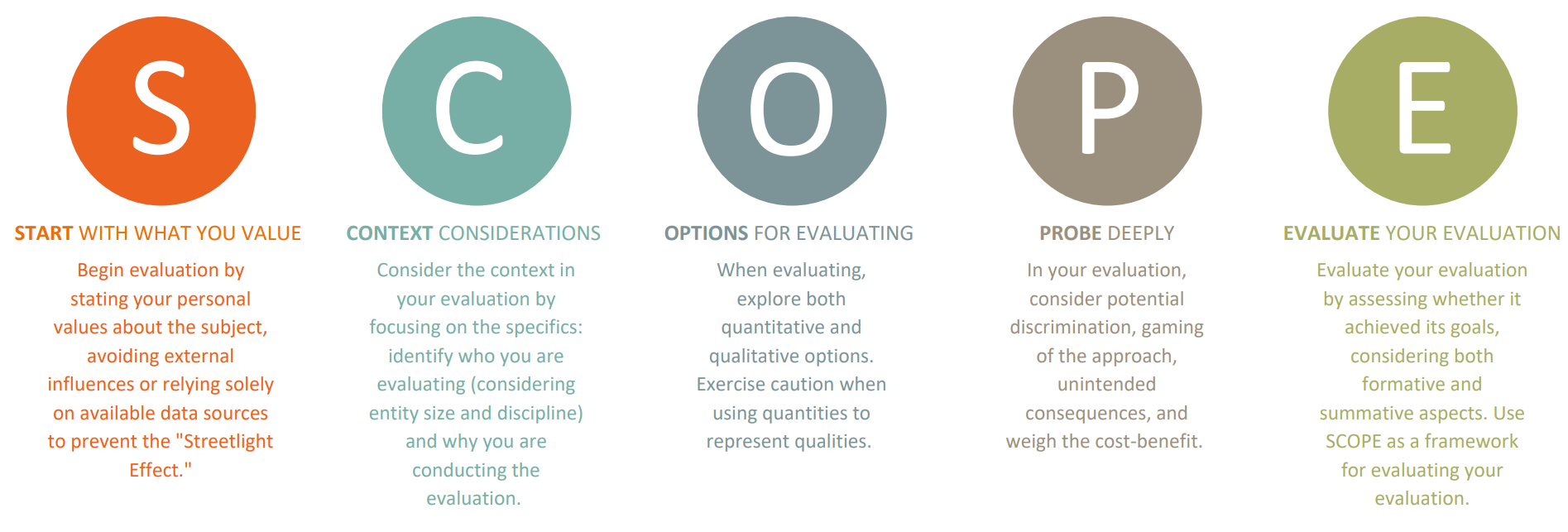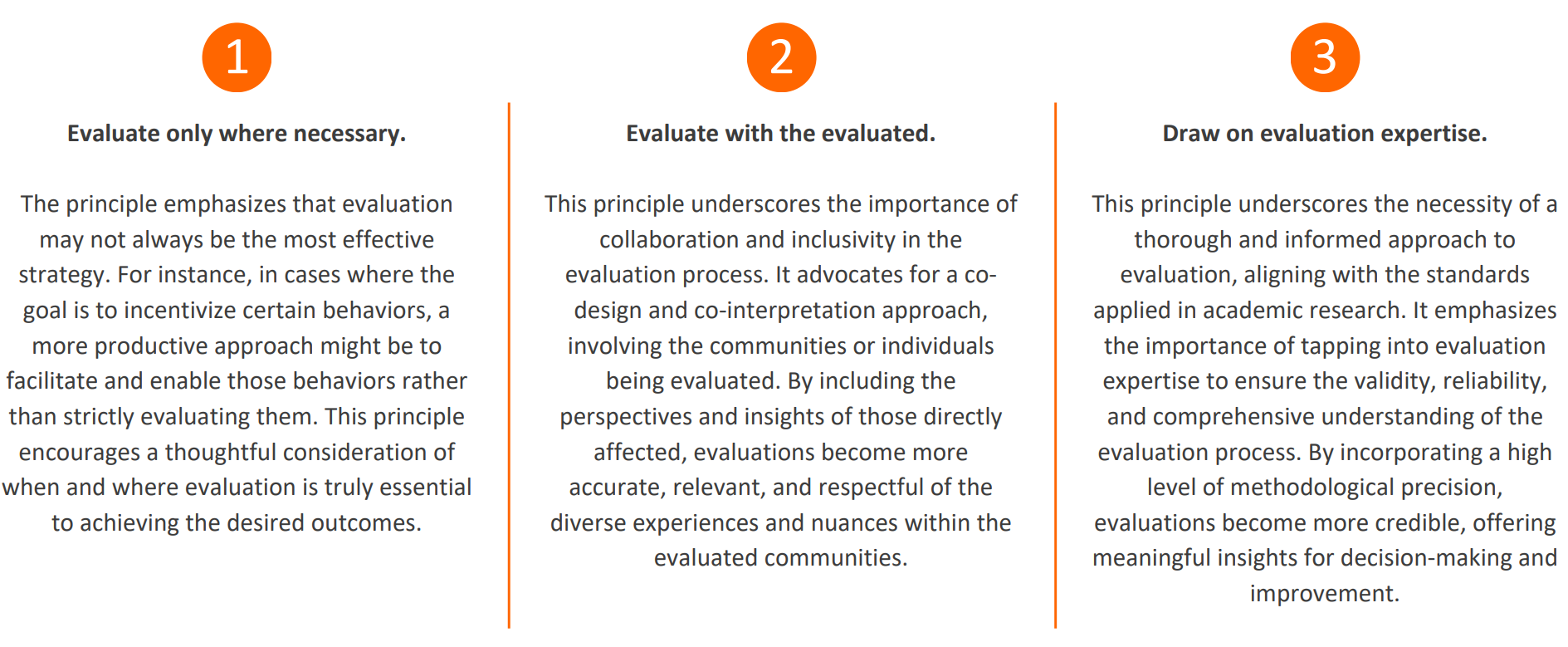SCOPE Framework for Research Evaluation
The SCOPE framework for research evaluation is a five-stage model for evaluating responsibly. It is a practical step-by-step process designed to help research managers, or anyone involved in conducting research evaluations, in planning new evaluations as well as check existing evaluations. SCOPE is an acronym, where S stands for START with what you value, C for CONTEXT considerations, O for OPTIONS for evaluating, P for PROBE deeply, and E for EVALUATE your evaluation.

Principles of SCOPE

SCOPE in Depth
PDFs
- SCOPE Full Guide – DOI: https://doi.org/10.26188/21919527.v1
- SCOPE One-Page Overview
- SCOPE Poster
- A one-page high-level overview of the SCOPE process. (Translations: Chinese, Danish, Icelandic, Norwegian, Brazilian Portuguese)
- SCOPE – a five-stage process for evaluating responsibly.
Videos
- A five-minute video introducing the SCOPE process.
- A webinar on the SCOPE process for research managers was held on Monday 20 April 2020. To watch the recording, click here.
Article
SCOPE Case Studies
| Study | Link |
|---|---|
| University of Turku (2023) POLICY FOR RESPONSIBLE ASSESSMENT OF RESEARCH AND RESEARCHERS based on SCOPE. |
https://www.utu.fi/sites/default/files/public%3A//media/file/Policy%20for% 20responsible%20assessment%20of%20research%20and%20researcher.pdf |
| Loughborough University (2023) Statement on responsible research assessment at Loughborough University based around SCOPE. | https://www.lboro.ac.uk/research/support/publishing/responsible-research-assessment/ |
| University of Surrey (2023) Use of SCOPE to develop open research indicators. | https://osf.io/v9wm8 |
| Bhattacharjee Suchiradipta, Moumita Koley, Jahnab Bharadwaj (2023). Workshop on Research Assessment Practices in Indian Funding Agencies. Journal of Science Policy & Governance. Vol 22, 1, 2023. |
https://www.researchgate.net/publication/369032650_Workshop_ |
| Using SCOPE to select metrics to track improvements in Research Culture: Interim reflections | https://sway.office.com |
| INORMS SCOPE Workshop Case Study: University of Glasgow: Supporting the careers of others. | https://inorms.net/wp-content/uploads/2021/05/inorms-scope-workshop-case-study-university-of-glasgow-final.pdf |
| INORMS SCOPE Workshop Case Study: Emerald Publishing: Evaluating the diversity of editorial boards | https://inorms.net/wp-content/uploads/2021/06/inorms-scope-workshop-case-study-emerald-publishing-final.pdf |
| SCOPE Mini Case Study: Creating awareness about responsible research evaluation: SCOPE used in interviews with Higher Education (HE) leaders in Denmark | https://inorms.net/wp-content/uploads/2021/06/danish-universities-use-of-scope-in-interviews-with-danish-he-leaders.pdf |
| SCOPE Case Study: Oslo Metropolitan University: Lectures in the master’s course “Scholarly Communication” | https://inorms.net/wp-content/uploads/2021/06/oslo-metropolitan-university-use-of-scope-in-masters-program.pdf |
| INORMS SCOPE Case Study: The UK Higher Education Funding Bodies: Developing a new national research evaluation system | https://inorms.net/wp-content/uploads/2021/11/inorms-scope-case-study-uk-he-funding-bodies-final.pdf |
One of the underpinning messages of SCOPE is not to abandon academic rigor when it comes to management practice. Most institutions have expertise in research evaluation – utilize that expertise! To persuade senior leaders of the benefits of responsible research evaluation, the group has also produced a set of arguments, available in several languages:
Five arguments to persuade HE Leaders to evaluate research responsibly (Translations: Chinese, Danish, Icelandic, Norwegian, Brazilian Portuguese)
The INORMS Research Evaluation Group can be invited to facilitate a workshop on the SCOPE process, for more information, please contact the chair [e.a.gadd@lboro.ac.uk].
For news coverage of this work, please see our Outputs & Outreach page.
Any feedback you have on this work, including any local implementations of the SCOPE process, can be emailed to any of the INORMS Research Evaluation Group members.
